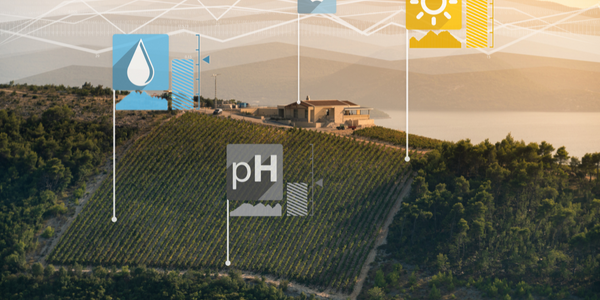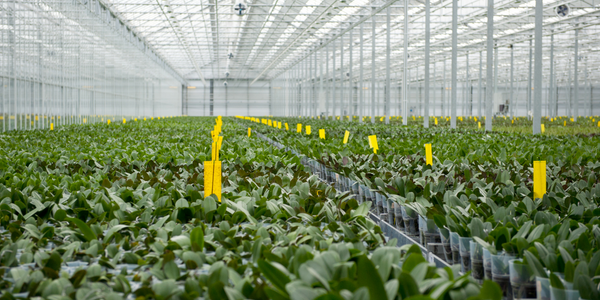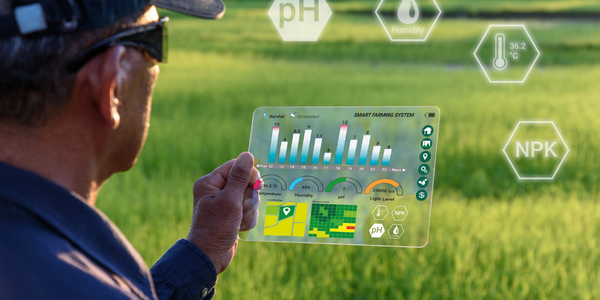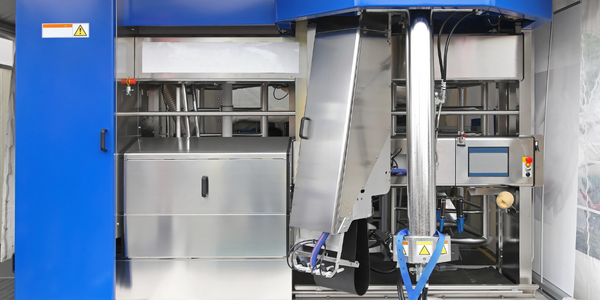Customer Company Size
Large Corporate
Region
- America
Country
- United States
Product
- Agworld
Tech Stack
- Cloud-based platform
Implementation Scale
- Enterprise-wide Deployment
Impact Metrics
- Productivity Improvements
- Cost Savings
Technology Category
- Platform as a Service (PaaS) - Data Management Platforms
Applicable Industries
- Agriculture
Applicable Functions
- Logistics & Transportation
- Quality Assurance
Use Cases
- Farm Monitoring & Precision Farming
- Supply Chain Visibility
Services
- Cloud Planning, Design & Implementation Services
About The Customer
Lance Funk Farms is a large-scale farming operation based in Power County, Idaho. With 36,000 acres of irrigated cropping land, the farm produces a variety of crops including potatoes, wheat, sugar beets, corn, barley, and safflower. The farm employs over 110 full-time employees, with an additional 150 seasonal employees during peak season. The farm's largest crop in terms of acreage is wheat, while potatoes are the biggest contributor financially. The farm grows 19 different varieties of potatoes, in addition to the other crops, which adds to the complexity of managing the operation.
The Challenge
Lance Funk Farms, one of the USA’s largest suppliers of potatoes, was using multiple legacy software systems for precision functionality, but none of these systems offered any record keeping ability. In order to organize the farming operation with up to 250 employees in peak season, management had to rely on spreadsheets. The sheer size of the operation, in combination with the variety of crops grown, drove the farm to explore software solutions that could help better manage the operation and aid with traceability. Before adopting Agworld, they would make a standardized spray program and every field kind of got the same inputs applied.
The Solution
After finding out about Agworld, Director of Agriculture for Lance Funk Farms Todd Kirwan, spoke to his agronomy and inputs supplier Valley Agronomics who were just starting to implement Agworld in their organization. When he realized the advantages that Agworld could offer the farming operation and the synergies that using Agworld in combination with his agronomy service provider would offer them, Todd Kirwan decided to implement Agworld. By using Agworld, Lance Funk Farms is able to organize itself with much greater ease and Farm Managers are able to answer their own questions about a wide variety of crop management questions instead of constantly having to ask questions to agronomists and others.
Operational Impact
Quantitative Benefit

Case Study missing?
Start adding your own!
Register with your work email and create a new case study profile for your business.
Related Case Studies.

Case Study
Intelligent Farming with ThingWorx Analytics
Z Farms was facing three challenges: costly irrigation systems with water as a limited resource, narrow optimal ranges of soil moisture for growth with difficult maintenance and farm operators could not simply turn on irrigation systems like a faucet.

Case Study
Greenhouse Intelligent Monitoring and Control Solution
Farming Orchids is the most successful form of precision farming in Taiwan, and also the most exported flower. Orchids need a specific temperature and humidity conditions to grow and bloom, and its flowering time may not be in line with market demands, so the price collapses when there is overproduction. Therefore, some farmers began to import automated greenhouse control systems for breeding and forcing, which not only improves quality, but also effectively controls the production period and yield to ensure revenue. In 2012, an orchid farmer built a Forcing Greenhouse of about 200 pings (approximately 661 Square Meters) in Tainan, Taiwan. The system integrator adopted Advantech’s APAX-5000 series programmable automation controllers to build the control platform, coupled with Advantech WebAccess HMI/SCADA software, to achieve cloud monitoring. The staff of the orchid field can monitor important data anytime via smart phone, iPad, and other handheld devices, and control the growth and flowering conditions. System requirements: In the past, most environmental control systems of orchid greenhouses in Taiwan used PLCs (Programmable Logic Controller) with poorscalability and control, and could not be connected to the Internet formonitoring from the cloud. For advanced database analysis and networking capability, the PC platform must be adopted. Therefore, PAC Systems (Programmable Automation Controller) with both PLC programming capabilities andPC functions is a better choice.The environmental control of the Orchid greenhouse switches on and off devices like fan, shade net, cooling/heat pump, liquid flow control, water-cooling wall etc. It is controlled by a control panel of electric controllers, and is driven by a motor, to adjust the greenhouse temperature, humidity, and other environmental conditions to the set parameters.

Case Study
Precision beekeeping with wireless temperature monitoring
Honeybees are insects of large economic value and provide a vital service to agriculture by pollinating a variety of crops. In addition, bees provide us with valuable products such as honey, beeswax, propolis, bee venom, etc. Monitoring of honeybee colony health, population, productivity, and environmental conditions affecting the colony health have always been exceedingly difficult tasks in apiculture. Research has shown that even small deviations (by more than 2°C) from the optimal temperatures have a significant influence on the development of the brood and the health of adult bees.

Case Study
Enabling Internet of Things Innovation in Agriculture
DigiBale, wanted to apply technology know-how and IP from implementations successfully to more agriculture sectors including cotton, forestry, sugarcane and cattle. However, farmers and growers still have worries about the connected technology.









